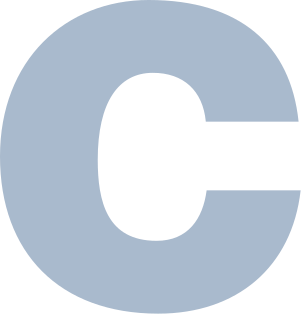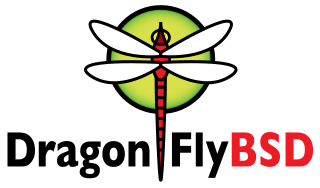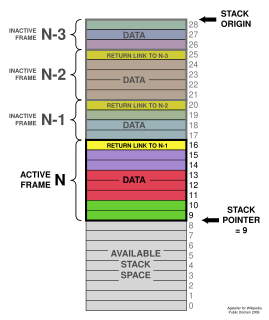
C is a general-purpose computer programming language. It was created in the 1970s by Dennis Ritchie, and remains very widely used and influential. By design, C's features cleanly reflect the capabilities of the targeted CPUs. It has found lasting use in operating systems, device drivers, protocol stacks, though decreasingly for application software. C is commonly used on computer architectures that range from the largest supercomputers to the smallest microcontrollers and embedded systems.
Java and C++ are two prominent object-oriented programming languages. By many language popularity metrics, the two languages have dominated object-oriented and high-performance software development for much of the 21st century, and are often directly compared and contrasted. Java appeared about 10 years later and its syntax was based on C/C++.

Memory management is a form of resource management applied to computer memory. The essential requirement of memory management is to provide ways to dynamically allocate portions of memory to programs at their request, and free it for reuse when no longer needed. This is critical to any advanced computer system where more than a single process might be underway at any time.

DragonFly BSD is a free and open-source Unix-like operating system forked from FreeBSD 4.8. Matthew Dillon, an Amiga developer in the late 1980s and early 1990s and FreeBSD developer between 1994 and 2003, began working on DragonFly BSD in June 2003 and announced it on the FreeBSD mailing lists on 16 July 2003.
C dynamic memory allocation refers to performing manual memory management for dynamic memory allocation in the C programming language via a group of functions in the C standard library, namely malloc, realloc, calloc and free.
Dmalloc is a C memory debugger library written by Gray Watson to assist programmers in finding a variety of dynamic memory allocation mistakes. It replaces parts of the C standard library provided by the operating system or compiler with its own versions, which produce information intended to help the programmer detect problematic code.

DTrace is a comprehensive dynamic tracing framework originally created by Sun Microsystems for troubleshooting kernel and application problems on production systems in real time. Originally developed for Solaris, it has since been released under the free Common Development and Distribution License (CDDL) in OpenSolaris and its descendant illumos, and has been ported to several other Unix-like systems.

The GLib Object System, or GObject, is a free software library providing a portable object system and transparent cross-language interoperability. GObject is designed for use both directly in C programs to provide object-oriented C-based APIs and through bindings to other languages to provide transparent cross-language interoperability, e.g. PyGObject.
Memory pools, also called fixed-size blocks allocation, is the use of pools for memory management that allows dynamic memory allocation comparable to malloc or C++'s operator new. As those implementations suffer from fragmentation because of variable block sizes, it is not recommendable to use them in a real time system due to performance. A more efficient solution is preallocating a number of memory blocks with the same size called the memory pool. The application can allocate, access, and free blocks represented by handles at run time.

Stacks in computing architectures are regions of memory where data is added or removed in a last-in-first-out (LIFO) manner.
The Hoard memory allocator, or Hoard, is a memory allocator for Linux, OS X, and Microsoft Windows. Hoard is designed to be efficient when used by multithreaded applications on multiprocessor computers. Hoard is distributed under the Apache License, version 2.0.
In the C++ programming language, new and delete are a pair of language constructs that perform dynamic memory allocation, object construction and object destruction.
Slab allocation is a memory management mechanism intended for the efficient memory allocation of objects. In comparison with earlier mechanisms, it reduces fragmentation caused by allocations and deallocations. This technique is used for retaining allocated memory containing a data object of a certain type for reuse upon subsequent allocations of objects of the same type. It is analogous to an object pool, but only applies to memory, not other resources.
In computer science, manual memory management refers to the usage of manual instructions by the programmer to identify and deallocate unused objects, or garbage. Up until the mid-1990s, the majority of programming languages used in industry supported manual memory management, though garbage collection has existed since 1959, when it was introduced with Lisp. Today, however, languages with garbage collection such as Java are increasingly popular and the languages Objective-C and Swift provide similar functionality through Automatic Reference Counting. The main manually managed languages still in widespread use today are C and C++ – see C dynamic memory allocation.
mtrace is the memory debugger included in the GNU C Library.
A page, memory page, or virtual page is a fixed-length contiguous block of virtual memory, described by a single entry in the page table. It is the smallest unit of data for memory management in a virtual memory operating system. Similarly, a page frame is the smallest fixed-length contiguous block of physical memory into which memory pages are mapped by the operating system.
oneAPI Threading Building Blocks, is a C++ template library developed by Intel for parallel programming on multi-core processors. Using TBB, a computation is broken down into tasks that can run in parallel. The library manages and schedules threads to execute these tasks.
brk and sbrk are basic memory management system calls used in Unix and Unix-like operating systems to control the amount of memory allocated to the data segment of the process. These functions are typically called from a higher-level memory management library function such as malloc. In the original Unix system, brk and sbrk were the only ways in which applications could acquire additional data space; later versions allowed this to also be done using the mmap call.
In C++ computer programming, allocators are a component of the C++ Standard Library. The standard library provides several data structures, such as list and set, commonly referred to as containers. A common trait among these containers is their ability to change size during the execution of the program. To achieve this, some form of dynamic memory allocation is usually required. Allocators handle all the requests for allocation and deallocation of memory for a given container. The C++ Standard Library provides general-purpose allocators that are used by default, however, custom allocators may also be supplied by the programmer.

The .NET Framework is a proprietary software framework developed by Microsoft that runs primarily on Microsoft Windows. It was the predominant implementation of the Common Language Infrastructure (CLI) until being superseded by the cross-platform .NET project. It includes a large class library called Framework Class Library (FCL) and provides language interoperability across several programming languages. Programs written for .NET Framework execute in a software environment named the Common Language Runtime (CLR). The CLR is an application virtual machine that provides services such as security, memory management, and exception handling. As such, computer code written using .NET Framework is called "managed code". FCL and CLR together constitute the .NET Framework.






